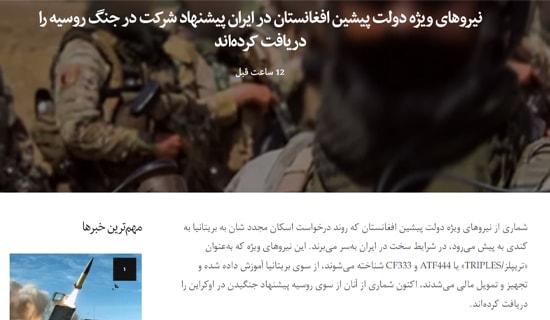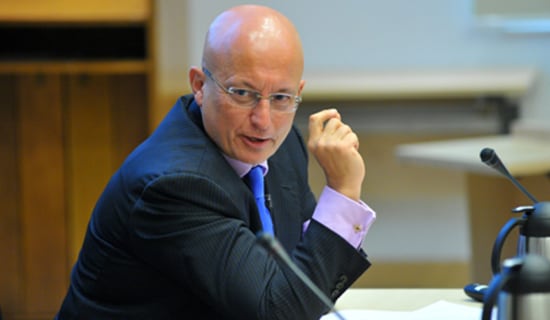President Biden's first trip to the Middle East as U.S. president this week after 18 months in office has generated intense coverage, particularly on the Saudi leg of his trip. Much profound analysis has been written but perhaps one fringe right-wing outlet said it most succinctly: "Biden going to Saudi Arabia for Oil and Groveling."[1] A headline that is a bit exaggerated and not completely accurate but not entirely wrong either.

Oil and groveling are both bound to be on the agenda but the trip is about much more than that. Biden's trip does not just come in the wake of comments he made about Saudi Arabia on the campaign trail: "I would make it very clear we were not going to sell more weapons to them, we were going to, in fact make them pay the price and make them, in fact, the pariah that they are. There's very little social redeeming value in the present government in Saudi Arabia."[2]
The trip also is not just within the context of anti-Saudi actions taken by the Biden Administration almost immediately from the beginning in early 2021, from the Houthis in Yemen to declassifying Khashoggi assassination files to stopping offensive weapons procurement. Nor is it principally about the Biden Administration's attempt to make a new nuclear deal with Iran that would reward the anti-Saudi regime in Tehran, long a sore point for Gulf states.
It is about all of these and more, the sense going back to the Obama Administration of which Biden was a part that the United States has become a fickle and untrustworthy ally, one that harbors a default enmity toward its traditional Arab allies, especially toward Saudi Arabia.[3] Aside from the niceties of diplomatic and official statements, which will always be polite and positive, what America's Arab allies say to each other about U.S. policy is often unprintable. What can be said is sometimes channeled through third parties such as a recent column by Iraqi Ali Al-Sarraf in a Gulf Arab owned daily, "the mere thought of welcoming him [Biden] is troubling and the thought of listening to him is repellent. One can imagine that millions of Saudis will feel repulsed by the mere idea of his feet touching their soil, not to mention the nonsense he may utter."[4]
Emirati scholar and commentator Dr. Abdul Khaleq Abdullah (a graduate of Georgetown and American University) was more diplomatic but perhaps more devastating in a July 7 "Letter to the American President from an Emirati Academic" in CNN Arabic. Dr. Abdullah warned President Biden that Gulf Arab states, "some of whose leaders are the age of your children or grandchildren," now "have the confidence to say no to Washington." These states have "their own national agendas and geopolitical priorities different from Washington," they have other options and the Gulf states of today are not the states they were in the 20th century. He cautioned against that "boring talk about human rights and democracy," as "America is unconvincing when it talks about this file" and the American model has lost its luster after the domestic turmoil of recent years.[5]
And although the Gulf Arab states are rather unique in the petro-abundance, much of the discourse by Abdullah and others about the need for Washington to temper its approach and adjust its policies to new realities is echoed across the world in other rising middle-to-larger powers, from Brazil to Turkey to India.
There was a time when Washington could give ironclad assurances behind the scenes (and receive them in kind) to these regimes while Washington could then put whatever spin it wanted to gullible audiences back home on the substance of these meetings. The world is smaller now and Gulf states need no help in figuring out what "a senior administration official" or "White House sources" tell Politico or the Washington Post about such a visit. Senior officials in the region are mature enough to differentiate between spin and reality but the fact that Washington's toxic discourse – especially that coming from the Obama and Biden Administrations – played out in public does complicate matters. Is plausibly deniable private regret going to be enough to balance out repeated public insult? Would – for example – a sea change in the U.S. policy of appeasement toward Iran, however unlikely that is to be seen in the coming days, be enough to overcome years of distrust and bitterness? Dr. Abdullah notes that Biden is not coming as a hero, he is coming because he forced to do so. Biden is seen as "devious" but "lacking cleverness," often a woeful combination in the region.[6]
As several experts have noted, the White House statement (and subsequent comments by Biden himself) announcing the trip tried to distance the U.S. president from the key element of the Saudi leg of the Middle East visit which is the interaction with Saudi Crown Prince Muhammad Bin Salman (MBS).[7] The press statement only mentions MBS's father, the 86-year-old King Salman, and Biden noted that he will be attending two meetings in Saudi Arabia, a GCC regional meeting (GCC plus Egypt, Jordan and Iraq), and a meeting with the king and his advisors. Biden pointedly said that his trip is "not about Saudi Arabia, it's in Saudi Arabia."[8]
The White House would very much like to avoid a scene like the photograph illustrating this article, a repeat of a smiling triumphant MBS welcoming a glum repentant Erdoğan.[9] American officials could well think that the United States is not Turkey and America is not in the dire straits that the Turkish strongman finds himself in today. Such a photo op would be deeply satisfying to the Saudi side and probably embarrassing to an American president seemingly besieged on every side by problems beyond his capacity to solve.
America's biggest "ask" may well be about oil production as a way of curbing the war-making ability of the West's villain of the day, Putin's Russia. A well-placed Gulf oil executive told me recently that Saudi Arabia is already pumping well above its OPEC Plus limits. Other GCC states can add some more but in the short term no one can make up a potential cutoff in Russian oil (a global recession is the surest way to bring oil demands down, hurting Russia but also the Gulf states, and everyone else).
The best possible outcome may be that incremental, cool, and measured baby steps happen, that the U.S. gives its Arab allies renewed assurances that may or may not be fully met but are seen as sincere, that it reverses some security-related steps taken against the Arab allies, in part or in full, and that Gulf states offer to raise output some but not as much as Washington wants, improvements rather than solutions.
Biden can also try to look like progress is being made in the Palestinian-Israeli or Abraham Accords (a term his administration initially eschewed because of its connection with the Trump Administration) portfolios.[10] Hopefully, no senior administration official will be tempted to boast about keeping a distance from Saudi Arabia's future king and readily accept political reality.[11] The nadir of U.S. relations with its Arab allies was not reached overnight, it took years of hard, destructive work and will not be fully reversed in one brief trip, no matter what promises are made. A Turkish-like hug would be nice but Arab rulers are beyond the false glitter of superficialities unmoored from hard political reality, whether coming from Washington or from anywhere else.
*Alberto M. Fernandez is Vice President of MEMRI.
[1] Ussanews.com/2022/07/07/biden-going-to-saudi-arabia-for-oil-and-groveling, July 7, 2022.
[2] Theintercept.com/2019/11/21/democratic-debate-joe-biden-saudi-arabia, November 21, 2019.
[3] See MEMRI Special Dispatch No. 10045, Saudi Press Ahead Of Biden Visit And Summit With Regional Leaders: We Expect Satisfactory Answers Regarding Iran; Should U.S. Disappoint, We Have Alternative Allies, June 28, 2022.
[4] See MEMRI Special Dispatch No. 10032, Article In London-Based Emirati Daily: It Will Be Better If President Biden Does Not Visit Saudi Arabia; The U.S. Is A Disloyal, Hypocritical And Greedy Ally, June 22, 2022.
[5] Arabic.cnn.com/middle-east/article/2022/07/06/abdulkhaliq-abdullah-message-biden-gulf, July 6, 2022.
[6] English.alarabiya.net/views/2022/07/07/Biden-s-devious-rhetoric-on-Saudi-Arabia, July 7, 2022.
[7] Whitehouse.gov/briefing-room/statements-releases/2022/06/14/statement-by-press-secretary-karine-jean-pierre-on-president-bidens-travel-to-israel-the-west-bank-and-saudi-arabia, June 14, 2022.
[8] Msn.com/en-us/news/world/biden-again-tries-to-distance-himself-from-saudi-crown-prince-mohammed-bin-salman/ar-AAZ2UJk, June 30, 2022.
[9] English.alaraby.co.uk/news/turkeys-erdogan-meets-saudis-mbs-develop-relations, April 29, 2022.
[10] Washingtoninstitute.org/policy-analysis/getting-israeli-saudi-deal-tiran-and-sanafir, July 7, 2022.
[11] Alishihabi.com/articles/muhammad-bin-salman-is-here-to-stay, July 25, 2019.





